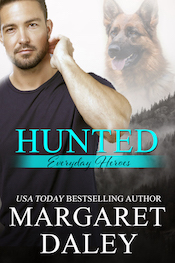
This week I’m hosting C.J. Darlington with Thicker Than Blood and Janice Thompson with Swinging on a Star. If you want to enter the drawing for the book, please leave a comment on one of the post during the week with your email address. I will not enter you without an email address (my way to contact you if you win). If you don’t want to leave an email address, another way you can enter is to email me at margaretdaley@gmail.com. The drawings end Sunday (Jan. 10th) evening.
Interview with C.J. Darlington:
What made you start writing?
I’ve loved books ever since I was a kid. My favorite pastime was reading and going to the library to get more books to read. Writing my own stories seemed like a natural extension of my reading. But only when I was twelve or so did I first start to imagine what it would be like to write and publish a book. The desire to write came early for me, and it never went away!
How long have you been writing? When did you sell your first book?
I’ve been writing practically my whole life if you count those early childhood stories about the hungry bear and the hot dog. But I really got serious about writing in my teens; it’s been about fifteen years.
Selling my first book came in a unique and wonderful way. The first novel I ever wrote, Thicker than Blood, was crafted over a period of years. I started the original story when I was fifteen years old. In 2004 I started submitting it to publishers and received many rejections. I eventually re-wrote and lengthened the story. In 2008 I entered the book in the Christian Writers Guild’s Operation First Novel contest, and it won! Part of the prize was publication with Tyndale House.
How do you handle rejections?
Early on I read a lot of books on the craft of writing, and I heard the advice over and over again that receiving rejection slips was the name of the game. It was how you dealt with the rejection that mattered. So when Thicker than Blood started amassing rejection letters, it didn’t bother me as much as it could have. I tried to tell myself I just hadn’t found the right publisher for the book. That worked for a little while, but as the rejections (and years) stacked up, I did start to feel discouraged. One of the best pieces of advice I heard on this subject was to start working on a new project. That way all your irons aren’t in one fire, and you’re able to pour your creative juices into something else.
Why do you write?
I write to share hope with people. But I also find that I can’t not write. For a little while I might be able to set the keyboard aside, but when I’m not writing something is missing.
What would you be doing with your free time if you weren’t writing?
Reading, tackling the oil painting I’ve been working on for several years (and have yet to finish), or perhaps starting some new painting projects.
What are you working on right now?
I’m in the beginning stages of my third book. And I’m also putting the finishing touches on my second novel, tentatively titled Innocent Blood. Beginning a book is always a challenge, but it’s also exciting because I get to explore new characters and situations.
Do you put yourself into your books/characters?
There’s a little of me in all the characters I write. For example, the main character of Thicker than Blood, Christy Williams, works at a large used and rare bookstore. That stems from my own experiences in the antiquarian book world. I’ve been a used bookseller for over thirteen years and was able to incorporate a lot of what I’ve learned into this story. But there’s also some of me in the other main character of the book, May Williams, sister to Christy. She loves the outdoors and animals like I do.
Tell us about the book you have out right now.
Thicker than Blood is the story of two estranged sisters who haven’t seen each other for fifteen years. Both are struggling in their own ways—Christy with her past and guilt, May with foreclosure and trusting God. One’s a Christian; the other isn’t. Rare books play an important role in the novel, especially a first edition of Ernest Hemingway’s For Whom the Bell Tolls. But ultimately, Thicker than Blood delivers a message of the forgiving and redemptive power of God available to all those hurting and abused among us.
Do you have any advice for other writers?
Never give up. When I first started receiving rejections for my novel, I could’ve thrown in the towel. Sometimes I felt like doing it, too. But I’m so glad I didn’t. Even if your first novel isn’t published, keep going. Write your second, third, fourth. Determine that no matter how long it takes you’re going to keep going and learning your craft. Sometimes it’s just a matter of timing. The right editor and publisher might not be ready for your book now, but they could be next year.
How important is your faith in your books?
My faith is why I write. It’s my goal as a writer to share the gospel without preaching. I want people to know that no matter how far they’ve walked away from God it only takes one step back to Him to make things right.
What themes do you like to write about?
I write about real life and real hope. There’s grittiness in my stories, but there’s also light. If I had to use one word I’d say the theme for all my stories is redemption. In Thicker than Blood forgiveness is also an important theme.
What is your favorite book you’ve written and why?
Thicker than Blood will always be special to me for several reasons. So far I’ve worked on it the longest of any of my projects. The characters have become like friends. But my second novel is also special. I hope I’ve improved in my writing with this book, tapping even deeper into the emotions of the characters.
What is your writing schedule like?
I still have a day job in the used bookselling world, but since I work for myself that schedule is flexible. On the days when the day job is slow, I’m able to focus on writing. Ideally, I would write from 7-9 at night and at least one full day on the weekends. That doesn’t always happen, mostly due to my own procrastination, but it’s what I strive for.



